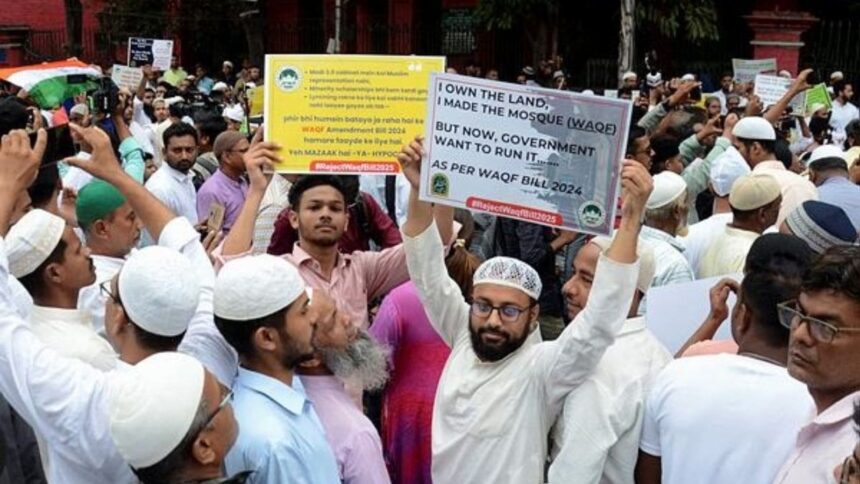The Supreme Court on Thursday reserved its interim orders on three contentious issues tied to the Waqf (Amendment) Act, 2025, after an intense, multi-day hearing on a batch of petitions challenging the constitutionality of the amended law.
A bench led by Chief Justice B R Gavai and Justice Augustine George Masih concluded hearings after listening to arguments from senior advocates Kapil Sibal, Rajeev Dhavan, and Abhishek Singhvi, who appeared for the petitioners opposing the Act, and Solicitor General Tushar Mehta, who represented the Centre.
The petitioners sought interim relief on three primary grounds: “waqf by courts, waqf-by-user or waqf by deed”. The petitioners argue that the composition of state waqf boards and the Central Waqf Council should be managed solely by Muslims, except for ex-officio members.
Kapil Sibal, leading the challenge, described the legislation as a “complete departure from historical legal and constitutional principles” and accused the government of using a non-judicial process to seize control of waqf assets. “This is a case about the systematic capture of waqf properties. The government cannot dictate what issues can be raised,” he asserted.
The Centre, however, stood firm in its defence. Solicitor General Tushar Mehta argued that waqf, by definition, is a “secular concept” and emphasized that the court should not intervene in a law passed by Parliament that carries a “presumption of constitutionality”.
The government formally notified the Waqf (Amendment) Act, 2025 in April, after receiving the assent of President Droupadi Murmu on April 5. The bill had earlier cleared the Lok Sabha with 288 votes in favour and 232 against, and passed the with 128 members supporting it and 95 opposing.
In a comprehensive 1,332-page affidavit submitted on April 25, the Union Ministry of Minority Affairs defended the amendments and opposed any “blanket stay” on the law, stressing its legislative legitimacy and constitutional backing.








